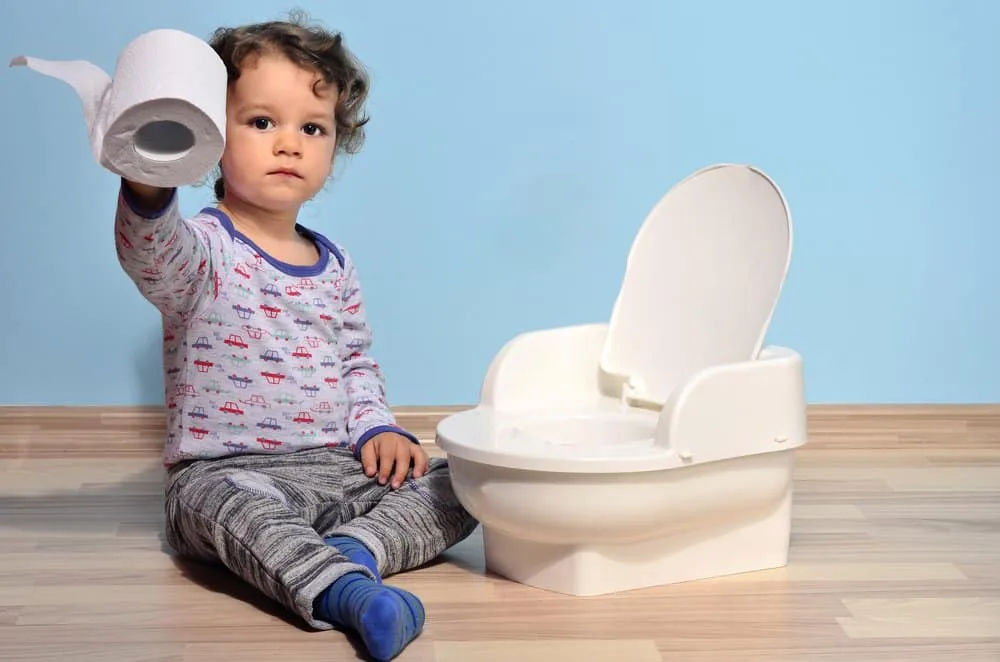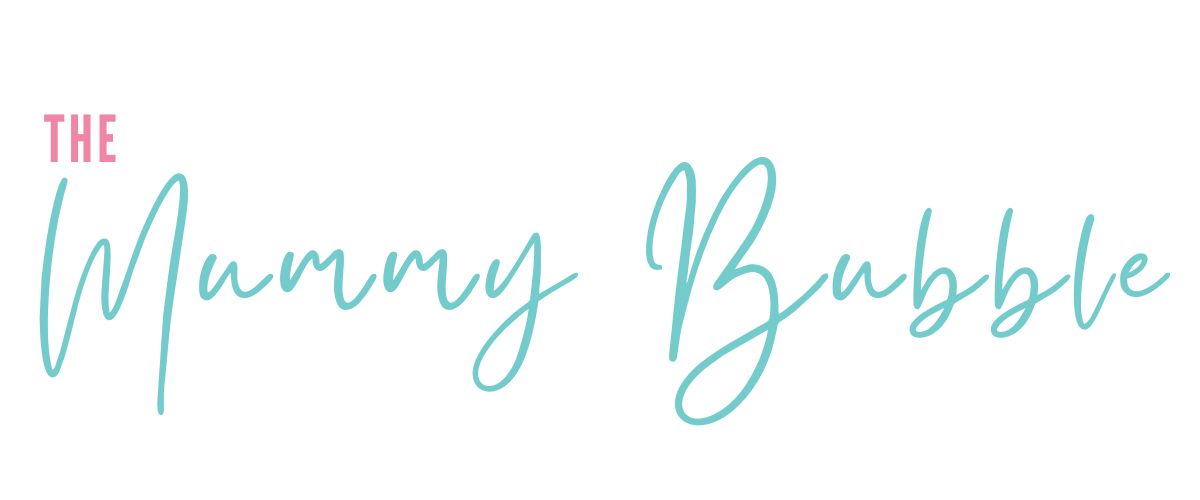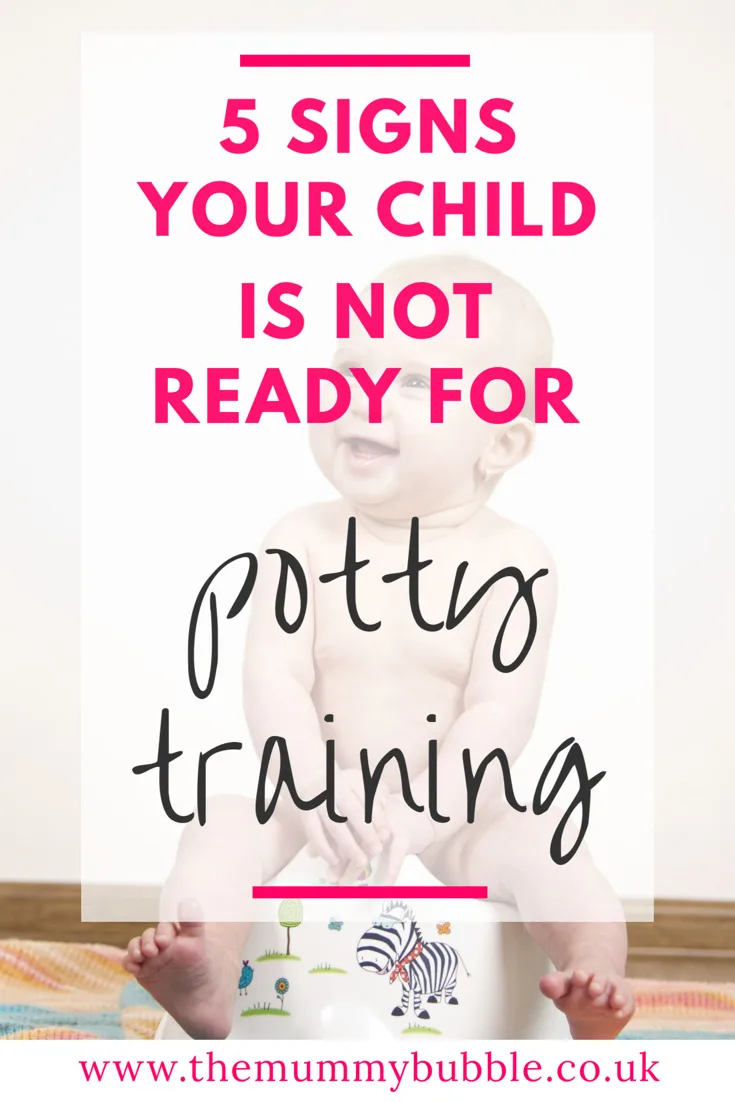Did you just start potty training your toddler and are now worried you started too soon?
Has the potty been out for a week but your toddler has yet to take a single meaningful visit to it?

We begin potty training full of enthusiasm to finally ditch the nappies and convinced that if we don’t get them on the toilet by age three then we’re getting it wrong as a parent.
But the thing is, every single child is different. You could slog it out for three months as your carpet becomes dotted with patches of wee and poop, or you could get this done in just a few days, because you waited until your child was actually ready.
There are several key signs that your toddler is just not ready to begin potty training. It is a milestone that you just should not force, not least because of the unnecessary stress it will place on you.
You may also like:
How to potty train your toddler fast
7 tips for potty training when out and about
What to do when you start potty training too soon
If potty training is not going well and it has been several days of mess and little progress, it is totally fine to hit pause.
Give yourselves a week or two off and then try again.
During that time you can continue to allow your child to have access to a potty and keep talking about using the potty to encourage them.
Then when you’re ready to try again, give it a go. Just because you have started trying to potty train, it does not mean you have to be all in. You can pause and return to it again later.
This is what I did and we got there in the end.
Signs your child is not ready for potty training
Here are the key signs that your toddler is not ready for potty training yet.
1. They poo poo the potty
Listen to your child. Yes you’re the adult and what you say goes 99 per cent of the time. But if your child is screaming, crying and repeatedly saying “no” to the potty and the toilet, give them a break.
The last thing you want is for them to have a negative association with the potty. Give it some time and reintroduce the potty slowly. Have it in the bathroom or even in the living room, somewhere your child can see it, before you ask them to use it again.
Get them used to its physical presence in their life. Let them watch you wee (I know, that was your one moment of alone time until now). Do everything you can to normalise the process without making them do it.
Then suggest they use the potty one day, and see how they take that. Offer a reward if they do. If they are really upset by it again, pause for a week. Keep trying and they will get used to it, just don’t make it into a battlefield.

2. They have lots of wet nappies
If your child’s bladder capacity is ready then they should be able to hold their wee for about two to three hours. If they’re still going shorter bursts, maybe hold fire until their body is physically up to it.
Ignore wet nappies overnight, as many kids will still need to wear pull-ups to bed after they have successfully potty trained.
3. They don’t tell you their nappy is dirty
If your child is totally happy sitting in their own filth without mentioning it, then they will struggle to communicate with you about when they need to go to the toilet.
They need to recognise the sensation of needing to go to the toilet and what it feels like when they do.
If a child is telling you right after they’ve done a wee or a poo, they may be getting close to being ready. If they tell you they need a poo, this is a good sign that they’re ready to give potty training a go.
It’s all about being able to communicate, in both ways, about what your child should do and when they need to do it.
4. Multiple accidents
I don’t mean the odd wee on the carpet. I mean 10 wees on the carpet and zero in the potty in the space of a couple of hours.
Some children just don’t have the muscles to control their bladder yet. They also just might not be ready to take that mental leap yet.
The more you labour the point, the more frustrated you will become with all of the accidents.
Yes it is a messy process, but it shouldn’t be this messy. If you’re on the right track, at least half of the bowel movements and wees should be going in the potty after a couple of days.
If they’re not, take a big step back and try again later.
5. You’re about to go on holiday
Combining a major step like potty training with something out of your normal routine is a bad idea. It’s not going to help your stress levels and your child will not really be learning anything because they’re not in their usual environment, so they’re not comfortable enough to absorb the new information and way of doing things.
It’s ok to put it off for major events like holidays and weddings. Try to block out a week or two where you don’t have much on and will be staying close to home, this is the best time to tackle the potty.
Remember that it’s ok to take a step back and wait a week or more. It’s ok if your toddler is still in nappies for now.
Why labour the point and stress both of you out?
When should you start potty training
Parents will generally begin potty training their toddler between the ages of 18 months and two years.
However every single parent is different. My youngest child was not ready until well after her third birthday.
I wasted far too much time worrying about this, because ultimately everything clicked into place once she was really ready and now we don’t have to think about it at all!
So the key message of this article to take away is, do not assume there is a set age your child should be using the potty.
Some kids are ready at 18 months, others are ready a little later than that. That’s OK, it doesn’t mean they won’t eventually get it.
I think when we read stories about people potty training their toddler in just three days, we assume it must be easy. And for some kids it does take less than a week, but for others it is more of a journey.
Rest assured, you are not alone. Remember to take a deep breath, and always have spare clothes on hand!
Potty training essentials
While you’re waiting for these issues to resolve and when you feel ready to get started, you’ll want to be prepared with a few items to get going on the potty training journey!
Here’s a list of items I had when we embarked on potty training once my child was ready:
- Potty
- Underwear (preferably let your child choose it or get some with their favourite TV character on so that they are excited to wear them)
- A reward chart (this is really useful when your child is a little stubborn)
- Toilet step (helps your toddler get on and off the toilet by themselves)
- Car seat pad (to protect your child’s car seat in case of accidents. I recommend putting your child in a nappy for long journeys of more than an hour)
You may also find my YouTube video about my own delayed potty training experiences with my child useful.
If you would like tips for potty training, including the easy method that worked for me, check out these posts:
How to potty train your toddler
How to potty train when out and about
V
X



